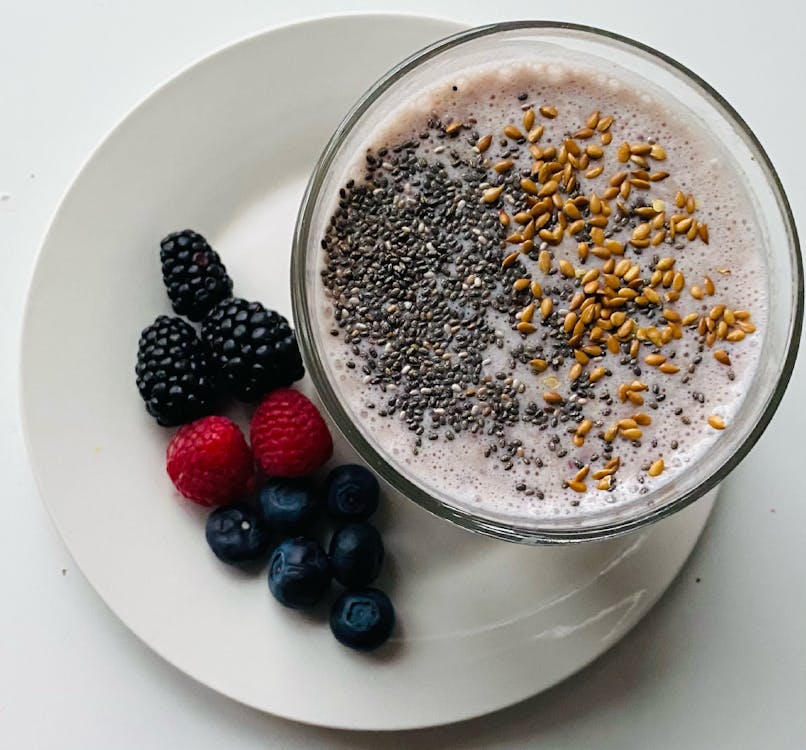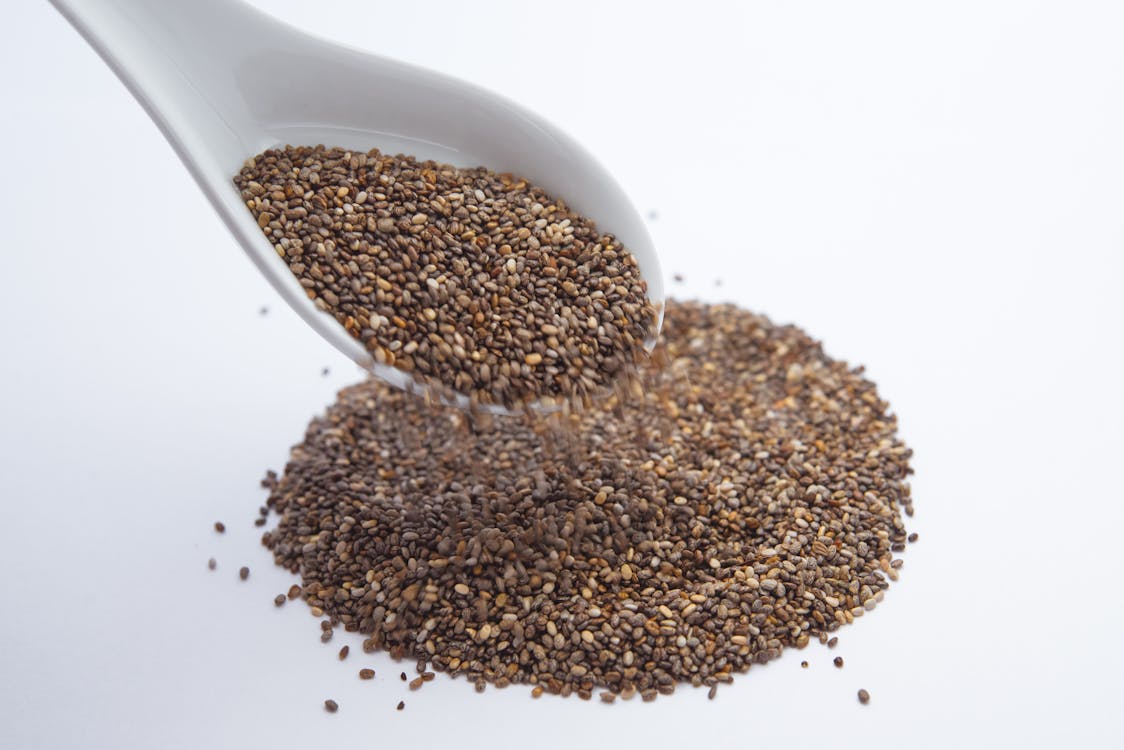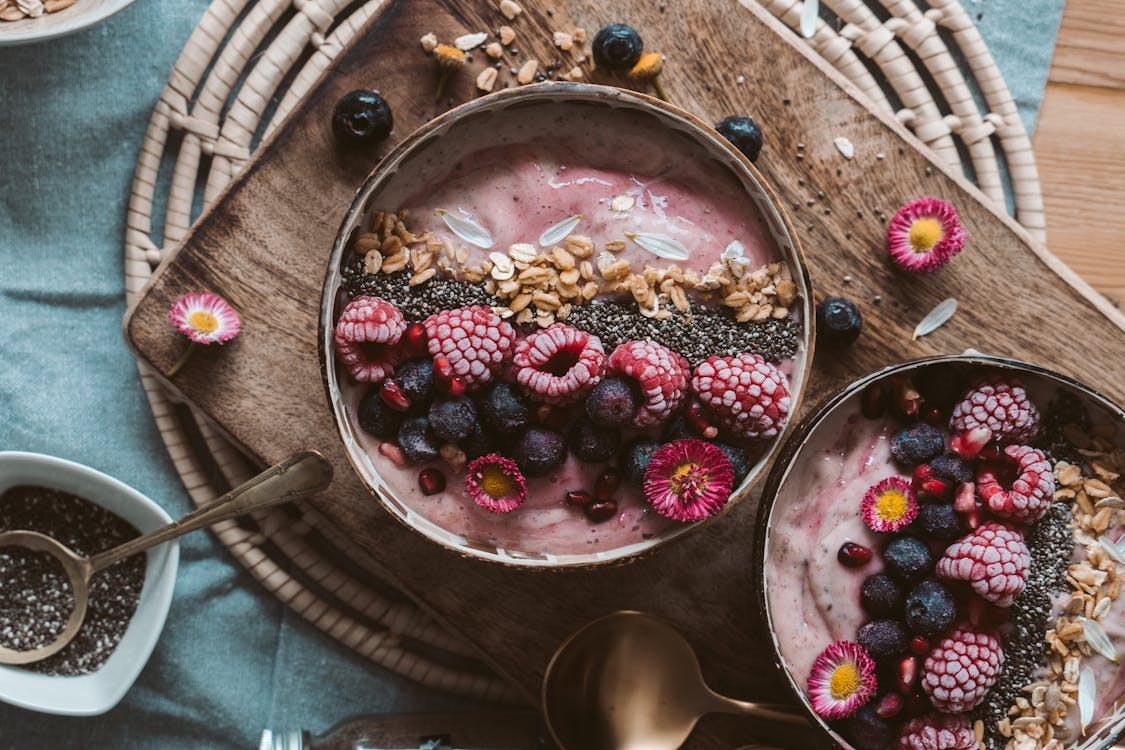Superfoods, those nutrient-dense, health-improving foods that have drawn the attention of health-conscious people all over the world, have become increasingly popular in recent years. Chia seeds stand out as a nutritious powerhouse among the superfoods that have become increasingly popular, despite their diminutive size. Chia seeds, or Salvia hispanica as they are known technically, have a long history of use and are indigenous to Mexico and Guatemala. The ancient Aztecs and Mayans, who appreciated their exceptional nutritional worth, made them a mainstay of their diet. Chia seeds are now causing quite a stir in the health and wellness world, and for good cause. We’ll cover all you need to know about chia seeds in this thorough guide, including their nutritional makeup, myriad health advantages, and numerous culinary uses.
Chia Seeds’ Origins and History
Chia Consumption in Ancient Civilizations
Chia seeds have a long history that extends back thousands of years. The Aztec and Mayan cultures are said to have been the first to employ chia as a food source. Chia seeds were especially revered by the Aztecs for their extraordinary nutritional value. Its name, “chia,” which comes from the Nahuatl word “chian,” means “to endure,” is fitting given that the plant may produce long-lasting energy.
These ancient tribes ingested chia seeds in many different forms as a staple food. The seeds would frequently be combined with water to form a gel-like mixture that they would then flavour with fruit juices, spices, and other seasonings. This chia gel, also known as “Chia Fresca,” was a cool drink that hydrated and fed messengers, warriors, and other people who needed to have stamina.
The Modern Revival of Chia
Chia seeds were once highly regarded, but with the Spanish invasion of the Aztec Empire in the 16th century, they fell out of favour. Chia was mostly forgotten for centuries, its promise lost in the pages of history.
Dr. Wayne Coates, a research professor at the University of Arizona, is responsible for the resurgence of chia seeds as a well-liked and commonly consumed superfood. Dr. Coates developed an interest in chia seeds in the 1990s after learning about its rich nutritional profile. He started doing thorough research on chia seeds after seeing their potential as a nutrient-rich, sustainable food source. Chia seeds were reintroduced to the modern world thanks in large part to his work.
Chia seeds are now widely available in supermarkets and health food shops, as well as in a variety of recipes that support good health and wellbeing.
Chia Seed Nutritional Profile
It’s important to investigate the exceptional nutritional profile of chia seeds in order to comprehend the rising interest in them. Chia seeds are a true superfood because they are full of vital minerals.
Omega 2.1 Macronutrients
Chia seeds are a fantastic plant-based source of protein. They are an excellent source of protein for vegans and vegetarians since they contain all nine necessary amino acids.
Omega-3 fatty acids make up the majority of the beneficial fats found in chia seeds. These fats are crucial for maintaining heart and brain health as well as for lowering inflammation.
Chia seeds have a low carbohydrate count but a high dietary fibre content that is good for satiety and digestive health.
Micronutrients
Vitamins: The vitamin B1 (thiamin), the vitamin B2 (riboflavin), the vitamin B3 (niacin), and the vitamin B6 are all present in chia seeds. These vitamins are important for metabolism, energy production, and general health.
Minerals: Important minerals like calcium, phosphorus, magnesium, and manganese are rich in chia seeds. Due to their very high calcium content, they are a fantastic alternative for people who must avoid dairy.
Antioxidants and Fibre
Fibre: Chia seeds have a high percentage of soluble fibre and are a great source of dietary fibre. This soluble fibre absorbs fluids, creating in the stomach a gel-like substance that can aid with blood sugar control and encourage a sense of fullness.
Chia seeds are a rich source of antioxidants, which aid in preventing the body from being harmed by free radicals. In order to lower the risk of chronic diseases and delay ageing, antioxidants are essential.
Benefits of Chia Seeds for Health
Chia seeds’ excellent nutritional profile translates into a variety of health advantages.
Weight Control
Chia seeds have a reputation for being able to help people manage their weight. Chia seeds contain soluble fibre that makes the stomach enlarge, leading to a sensation of fullness and a decrease in overall food consumption. Those who want to limit their calorie intake may find this to be especially helpful. Chia seeds’ high protein content can also aid in satiety and lessen the risk of overeating by reducing appetite.
Heart Health
Alpha-linolenic acid (ALA), one of the omega-3 fatty acids in chia seeds, has been linked to a lower risk of heart disease. ALA has been demonstrated to increase HDL levels while decreasing LDL levels, hence boosting heart health. Furthermore, chia seeds’ high fibre content can help prevent heart disease by lowering blood pressure and reducing inflammation.
Control of Blood Sugar
Chia seeds provide an effective method of blood sugar regulation for people with diabetes or those who are at risk of getting the disease. Blood sugar levels are stabilised by the soluble fibre in chia seeds, which slows down the digestion and absorption of carbs. For people with type 2 diabetes, this may be very crucial.
Bone Wellness
Calcium, which is necessary for keeping strong and healthy bones, is abundant in chia seeds. For those who cannot consume dairy products or are lactose intolerant, one ounce of chia seeds delivers roughly 20% of the daily required amount of calcium.
Digestive Health
Chia seeds’ significant fibre content promotes digestive health as well. Chia seeds are able to help with regular bowel movements and relieve constipation by creating a gel-like substance in the digestive tract after consumption. Furthermore, the fibre functions as a prebiotic, encouraging the development of good intestinal bacteria.
Mental Capacity
DHA (docosahexaenoic acid), in particular, is an omega-3 fatty acid that is essential for the health and function of the brain. Because of their high ALA content, chia seeds can help with memory, focus, and general brain health. Chia seed consumption could help prevent cognitive impairment as we age.
These are only a handful of the many advantages chia seeds have for your health. They may be easily added to a range of foods because to their versatility in the kitchen, which makes it simple for people to reap these benefits in a tasty and convenient way.
Chia Seeds: Including Them in Your Diet
One of the best qualities of chia seeds is their adaptability in the cooking. They add nutritious value and improved texture to a variety of recipes, and they can be easily included. Here are some well-liked ways to incorporate chia seeds into your diet every day:
Chia Pudding
A traditional method to eat chia seeds is in chia pudding. You may make chia pudding by combining chia seeds with any type of milk—dairy, almond, soy, etc.—along with flavourings like vanilla essence, chocolate powder, fruit, and spices. You will find a creamy, nutrient-rich custard waiting for you when you awake after letting the ingredients settle in the refrigerator for a few hours or overnight.
Chia Jam
A quick and nutritious jam recipe using chia seeds. Chia seeds, fruit, and a little sweetener can be combined with fresh or frozen fruit. The mixture should be heated until it thickens before cooling. In comparison to store-bought jams, this homemade version has fewer sugars and chemicals.
Chia Smoothies
By include chia seeds, you may improve the texture and nutritional value of your morning smoothie. You may add a spoonful of chia seeds to your preferred smoothie recipe to give it a light crunch and more creaminess.
Using Chia as a Thickener
Chia seeds are an efficient thickening ingredient for gravies, stews, and soups. Chia seeds must be combined with water to form a chia gel in order to be used in this manner. You can use this gel to thicken and improve the consistency of your foods.
Using Chia Seeds in Baking
Chia seed baking is not only a healthy option, but it’s also a great method to enhance the texture of your baked goods. Chia seeds can be substituted for eggs in recipes to increase moisture and binding strength. One tablespoon of chia seeds and three tablespoons of water are combined to produce a chia egg, which is then allowed to sit for a few minutes until it thickens. Most baking recipes allow you to use this in place of one egg.
Chia Seeds: A Multipurpose Food Ingredient
In addition to the more traditional uses listed previously, chia seeds have established themselves as a versatile ingredient. The following are some other methods to use chia seeds in your culinary creations:
Gluten-free and vegan baking
Chia seeds are an important component in vegan and gluten-free recipes because, as was already noted, they can take the place of eggs in baking. They add moisture and binding qualities, creating delectable plant-based delights that are just as good as their conventional counterparts.
Egg Substitute
Chia seeds can take the place of eggs in a number of recipes besides baking. Use chia eggs in recipes that call for binding ingredients, such as vegetarian meatballs and veggie burgers. This selection is more environmentally responsible in addition to being healthier.
Soups and salads with a nutrient boost
To add crunch and nutrients to soups, salads, and other foods, sprinkle chia seeds on top. They can improve the texture of a salad or give your favourite soup a nutritious, nutty flavour.
Drinks Containing Chia
Beyond chia pudding, chia seeds can be infused into other drinks. For an extra boost of nourishment, add them to your water, tea, or fruit-infused beverages. The seeds will swell and provide a cool drink with a distinctive texture.
How to Purchase, Store, and Use Chia Seeds
Knowing how to pick, store, and use chia seeds properly is crucial if you want to reap all of their health advantages.
Choosing Chia Seeds of the Best Quality
To make sure that your chia seeds are free of synthetic pesticides and genetic manipulation, seek for goods that are labelled as organic and non-GMO. Additionally, make an effort to get chia seeds from reliable companies with a track record of excellence and sustainability.
Sufficient Storage
Chia seeds can be kept for up to two years in a cool, dark location and are comparatively shelf-stable. However, it is advised to store them in the refrigerator in an airtight container to preserve their freshness and stop them from getting rancid. Additionally, it will assist stop moisture absorption, which can lead to seed clumping.
Warnings and Possible Negative Effects
Chia seeds have several health advantages, but it’s important to consume them in moderation. Due to its high fibre content, excessive eating may cause intestinal discomfort. To give your body time to adjust, start with a little amount and gradually increase your intake.
Additionally, when taking chia seeds, make sure you drink lots of water because they absorb moisture and can result in dehydration if not done so.
Chia Seeds in Contemporary Culture
Innovation in Food
Chia seeds are not only making a comeback in our kitchens, but they are also inspiring new culinary techniques. Chia seeds are being used ingeniously by food scientists and chefs to improve the nutritional value and texture of a variety of foods, from savoury to sweet. Chia seeds have a role in the field of food innovation thanks to their adaptability.
Commercial Production of Chia
Commercial production of chia seeds has increased along with consumer demand. Australia, Argentina, Mexico, and other nations currently produce a sizable amount of chia seeds. Chia seeds are now more widely available to consumers worldwide thanks to the growth of the chia seed market globally. This development has boosted the economies of these areas.
Sustainable Development and Ethical Issues
It is critical to take environmental and ethical issues into account in light of the rising popularity of chia seeds. Chia production should respect the rights and welfare of the local populations engaged as well as the environment. As buyers, we should be aware of and support businesses and producers who follow ethical and sustainable business practises.
The Revolution of the Chia Seed
Chia seeds are evidence of both the timeless wisdom of earlier civilizations and the continued possibility for nutritional innovation and discovery. Chia seeds, despite being tiny, have a wide range of nutritional and physiological advantages. Their reintroduction to the modern diet has launched a chia seed revolution, inspiring innumerable scrumptious and nourishing dishes to be created in kitchens all over the world.
It’s crucial to do so with knowledge of their history, a careful approach to their use, and a dedication to sustainability as we continue to investigate and enjoy the nutritious richness of chia seeds. Chia seeds have unquestionably earned their reputation as a superfood with significant health benefits, whether they are consumed as a straightforward chia pudding or used in elaborate culinary concoctions.
Therefore, you can enjoy the rich heritage and exceptional nutritional worth they bring to your plate the next time you sprinkle chia seeds on your salad or incorporate them into your morning smoothie. Chia seeds may be little, but they make a significant contribution to your health and well-being. Experience the many advantages that this superfood has to offer by embracing the chia seed revolution.



